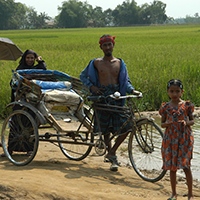Bangladesh in Eliška's heart
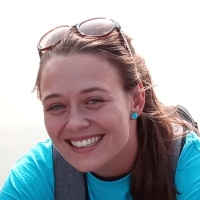
Eliška Hronková is the coordinator of a sister project Chalantika. In autumn 2021 she travelled to Bangladesh for a monitoring trip for the very first time. The fears of developing a disease as well as the fears of spiders and snakes were replaced by joy, unforgettable moments with children, princess afternoons, volleyball matches and photoshoots with soldiers.
First impressions and culture shock
Eliška, what were your expectations when you got to know you were going to Bangladesh?
I was looking forward to meet children and to get to know a new country. Also, I was eager to try the local food, because everyone who went to Bangladesh before was talking about it. And, I was looking forward to all the things that I was going to experience for first time in my life. I did not know what it would be exactly, but I knew it would be a lot.
What was it?
For example, acupuncture! I also fished for the first time, saw rice fields, and rode on a motorcycle. I was panning gravel in the river and spoke in Bengali for the first time. In fact, I experienced a lot of those small beautiful things.
Was there anything you were afraid of before going to Bangladesh?
I was afraid of getting sick, even though I was vaccinated. Anyway, you cannot get vaccinated against dengue or malaria. It is something you do not see coming. One day you are fine, the next day you are not fine and you cannot control it at all. When I was in Bangladesh, I realized that they live differently there than us in Europe. (They live in much more uncertainty). There are a lot of things you cannot control and you can only hope… I even did not check what kind of animals they have there, because I did not want to know about the snakes and spiders.
What were your first impressions when you arrived to Bangladesh?
I definitely had a culture shock. I already know what it is. That is the feeling when you wonder where you are, how to take care of the hygiene, how you eat and how you are going to function there. Suddenly, the enthusiasm for new experience got replaced by worries and fear.
I was also wondering if we have a chance to change anything, because you see the poverty here, there and everywhere. It is different when you read the statistics about the poverty and when you see peoples’ faces daily. Barefoot, naked children are running on the streets full of garbage, sometimes you see the apathetic faces… I felt very sorry for them.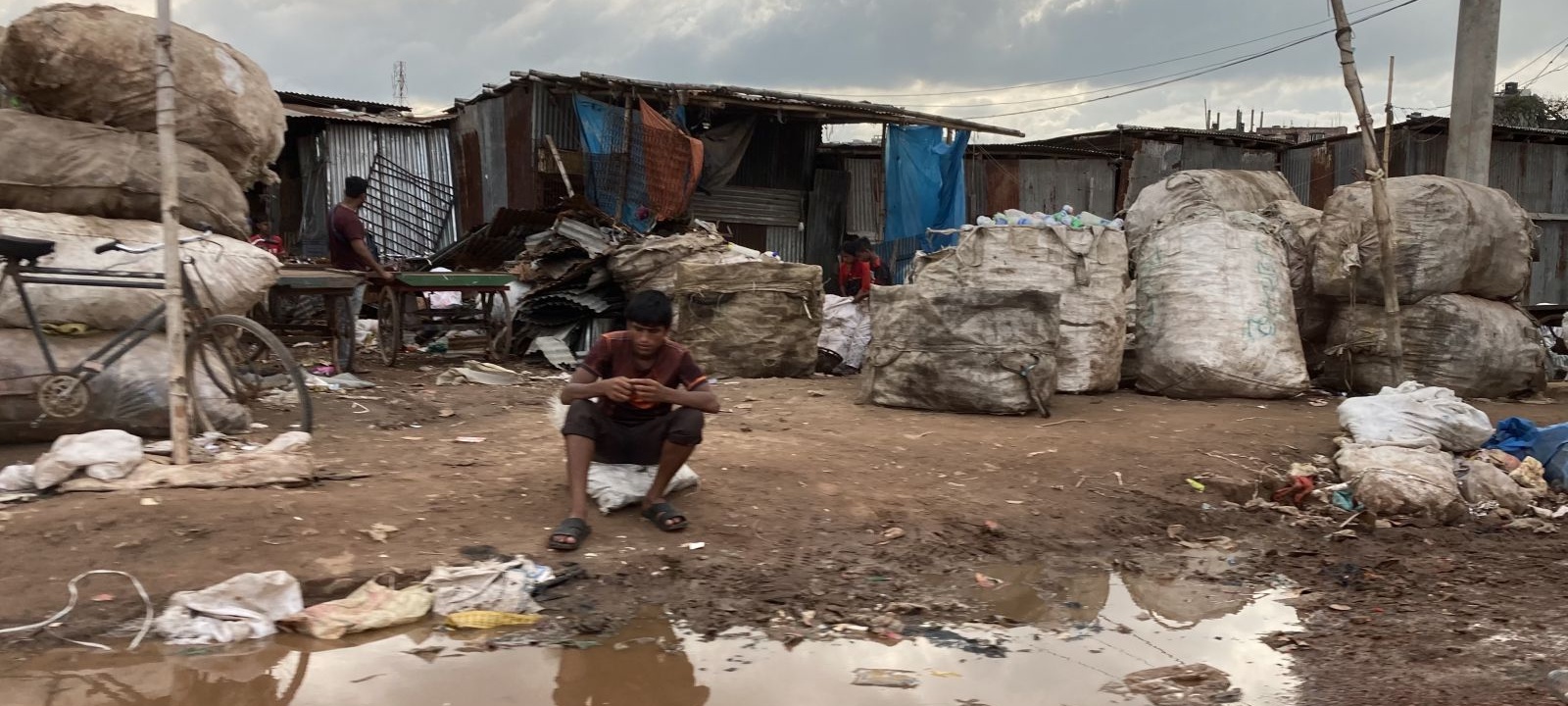 Actually, the first time I felt better was when we met the children from Chalantika on the street. I saw them laughing and enjoying every day. It helped me. Since then I think I slightly recovered from the culture shock.
Actually, the first time I felt better was when we met the children from Chalantika on the street. I saw them laughing and enjoying every day. It helped me. Since then I think I slightly recovered from the culture shock.
Giving a chance
Facing the poverty has led you to question if we can change anything there. Do you think we can?
I thought a lot about it. We certainly can give these people an opportunity. We can give them a chance. It does not necessarily mean that their life will change fundamentally, but at least they will get an opportunity and a chance for a better life. It is very sad and unfair to know that some people cannot have it.
Are you saying that when we give these children an opportunity, it is up to them to take it?
Exactly. I also realized how important it is to have the right motivation and to work with the whole families. Ms. Shilpi, who is working as a motivator, is a second mother for the children in the slum. She is trying to show the parents that there is somebody to help them and their children. This is crucial.
How did you feel when you met the children in the Chalantika slum?
When you see a slum for the first time from a distance, or perhaps from a car window, you feel so hopeless. But once you start talking to the locals, you find out how similar we all are. They have their worries but also their joys. Their joy is that we are there. And then sadness will pass.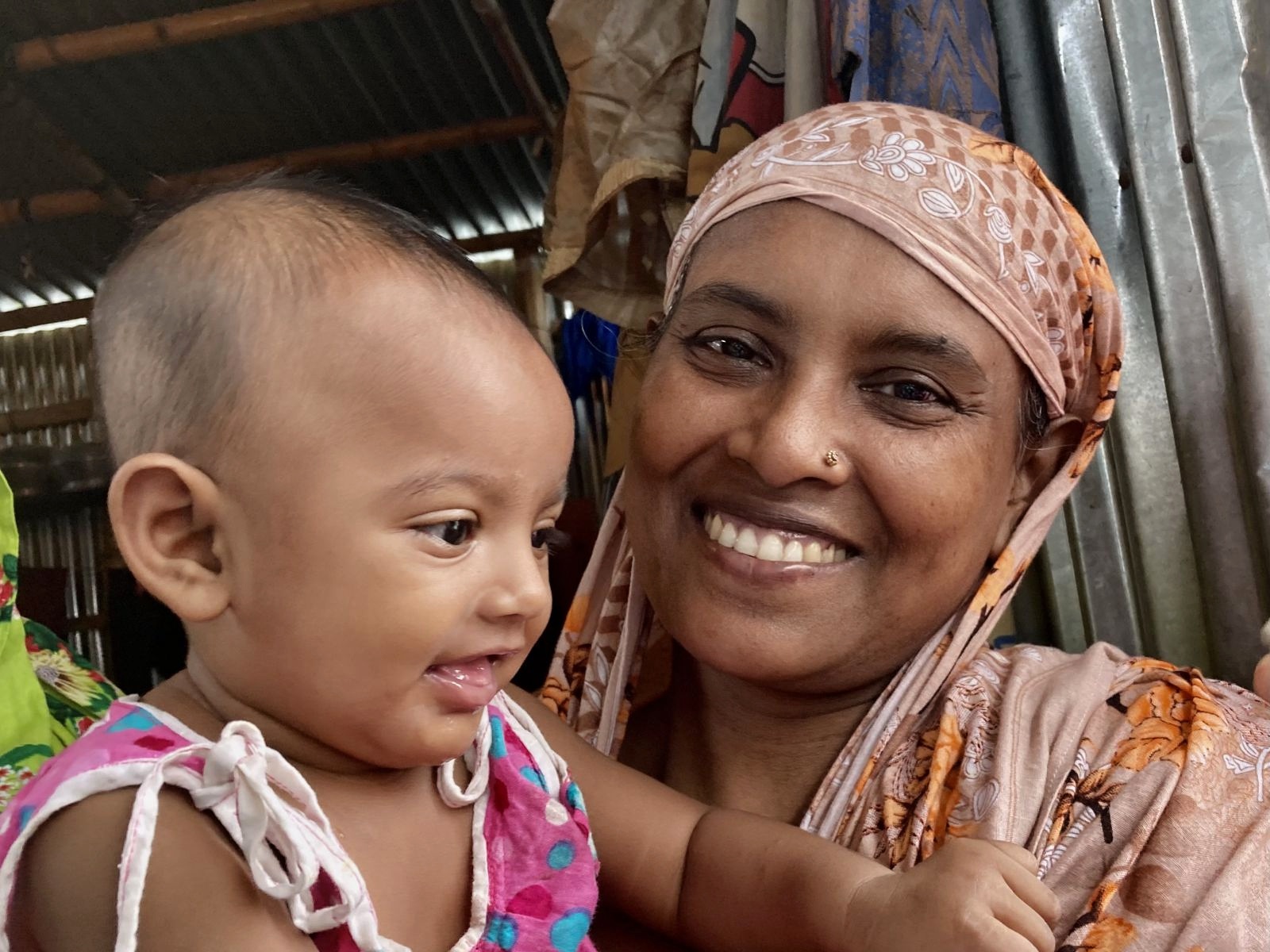
Is there anything else you liked?
I was actually impressed by a “cycle of good”. We visited a 15 year-old student, who is already tutoring small children. It is simply a multiplier effect. You provide an education to one person and it impacts the whole community.
The princess is coming
During your trip you also visited schools and children from BanglaKids program. How was the travelling?
It is very important to have a good driver in Bangladesh. You will get nowhere without the good one. Sometimes I was missing some exercises during long trips. And I have to admit that my worst experience in Bangladesh was toilets at the gas station.
I like children and once I met them I restored my energy after a long and tiring trip. I was not prepared to speak in public. I would say that the fear of speaking in public is much worse than the speech itself. I realized that when you speak about something you are passionate about, it comes naturally from your heart.
I know you are coming from the teacher’s family. Did you inherit this passion as well? Did it stimulate you to pursue the idea of working with children?
It definitely led this way, but it is not like I am saying “I will be a teacher”. In fact, I am already working with kids at the children camps in Pioneer during summer, and in the future I would like to do more of it during the year. In the camp everyone is working for pleasure. I am afraid if I have it as a full job and deal with all the things like curriculum, etc, it will put me down a little bit.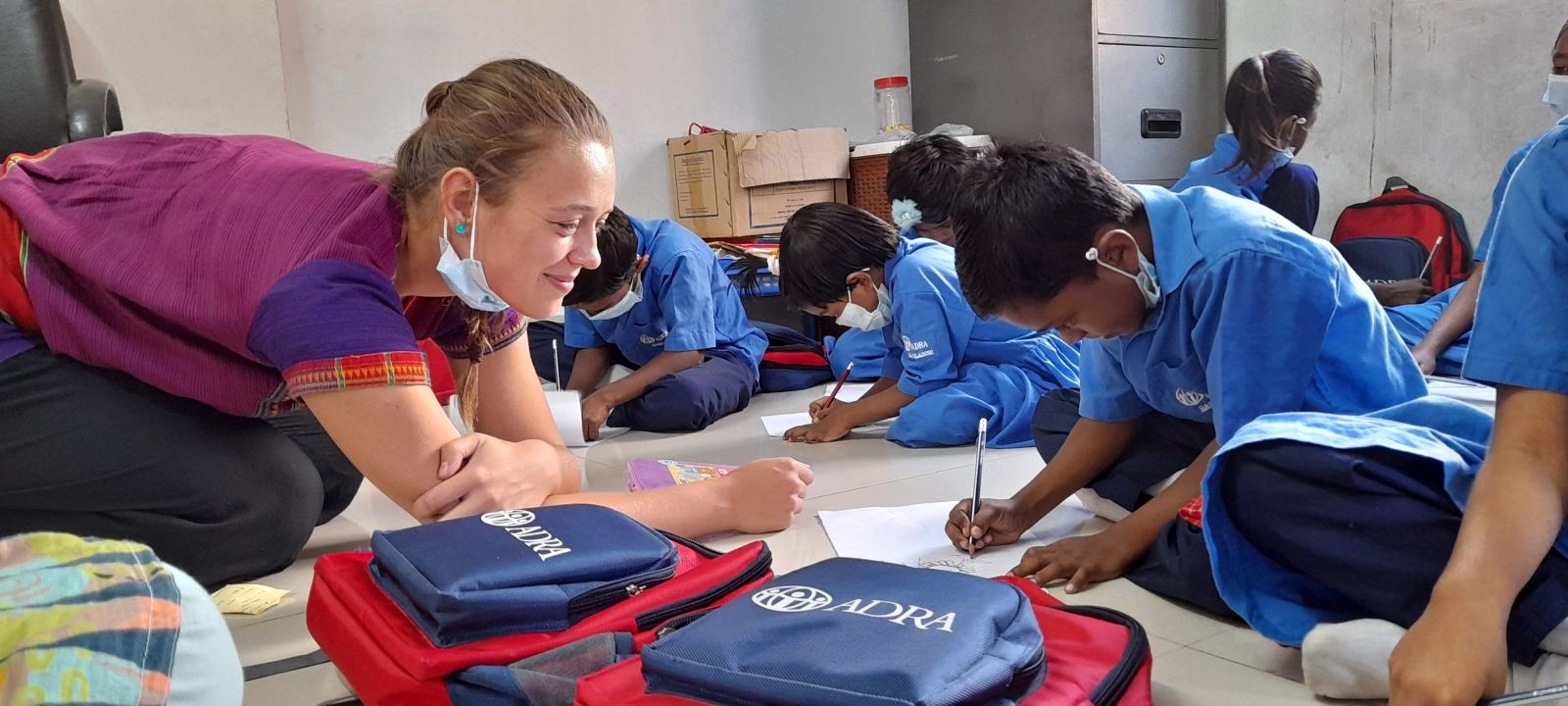 You travelled in the north of Bangladesh to see children on a motorcycle. How was it?
You travelled in the north of Bangladesh to see children on a motorcycle. How was it?
Sometimes we were driving such rallies off the road, and driving over the roots was quite an experience. We visited children in their homes. It was great to see where they live, where they cook, where they sleep… We even rode an old bike at one of the families’ home, the one you repaired. I really enjoyed it.
I was fascinated by the strong stories of women from the matriarchal Garo tribe, who have the responsibility of leading and securing the family. For example, one mother is smuggling the cookies from India and reselling them in Bangladesh. She carries them around in a basket around her neck that probably weighs at least twenty kilos. We could not even move it. She is really a strong woman.
Then we travelled west, and there you became a princess for one afternoon…
One afternoon we dressed in a traditional dress – a sari. It is not that easy to put it on, so an incredible lady Florence helped us. She is so friendly and really knows what she is doing. When she decides to fix something on campus, we trust her. It was nice to have such a girly afternoon.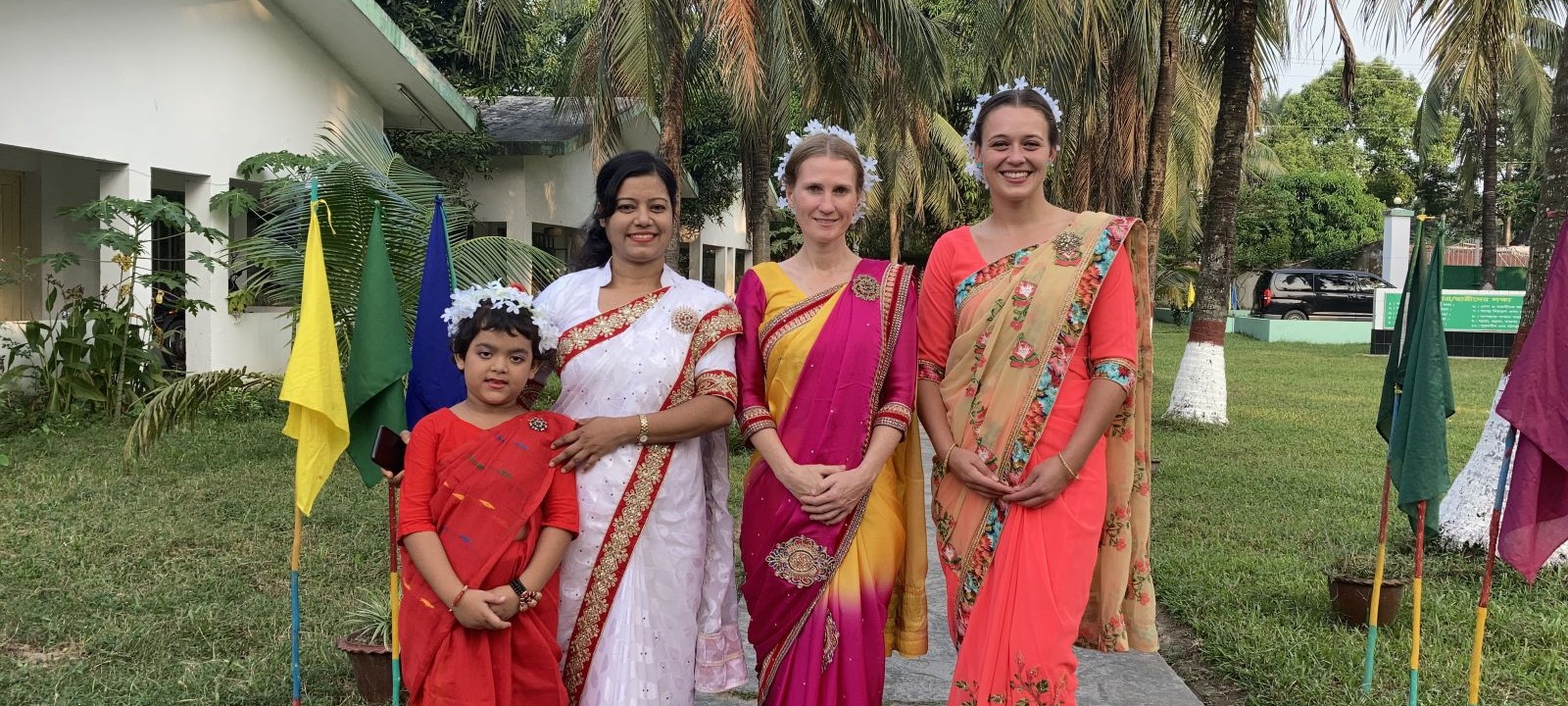
Sport unites everyone in the world
The South of Bangladesh was something special to you, wasn’t it?
The South was probably the best part for me, because we have worked very closely with the children there. First we went to GAPS school, where the 7th graders are studying. We played handball with them and it proved again that sport simply unites. It is true everywhere and it is the best teambuilding. After that we were swimming in the pond where we had a lot of fun. The children here have a movement talent. For example, they jumped backflip from one leg out of a bamboo stake.
But it wasn’t just about sport. We felt very welcomed there. One evening we visited girls’ dormitory and each room prepared something for us. It was very touching to see that they wanted to give us something even though they did not have much. They made hearts out of flowers, rehearsed a dance for us and prepared some cookies. They even stretched a festive ribbon at the entrance of one door. After that I was thinking about a little girl who gave away her precious ribbon, that is definitely not easy to get at a boarding school. We tried to reciprocate a bit, so we sang and taught them Macarena dance.
It was beautiful, spontaneous, and sudden… you just cannot plan or book anything like that.
Yes, in Czech Republic you would not experience anything like that. If someone you do not know well comes over to you to say he likes you, you would think he is being sarcastic.
Then you went to nearby KMMS boarding school…
Over there the children were a bit older and we have a different conversation. They were able to communicate in English. And I think over there I had my best volleyball match in Bangladesh, teachers versus students. I enjoyed it because I really miss sport while traveling.
In my opinion, it was the most athletic monitoring trip in the last 8 months…
… because the people on the monitoring trip are creating it... :)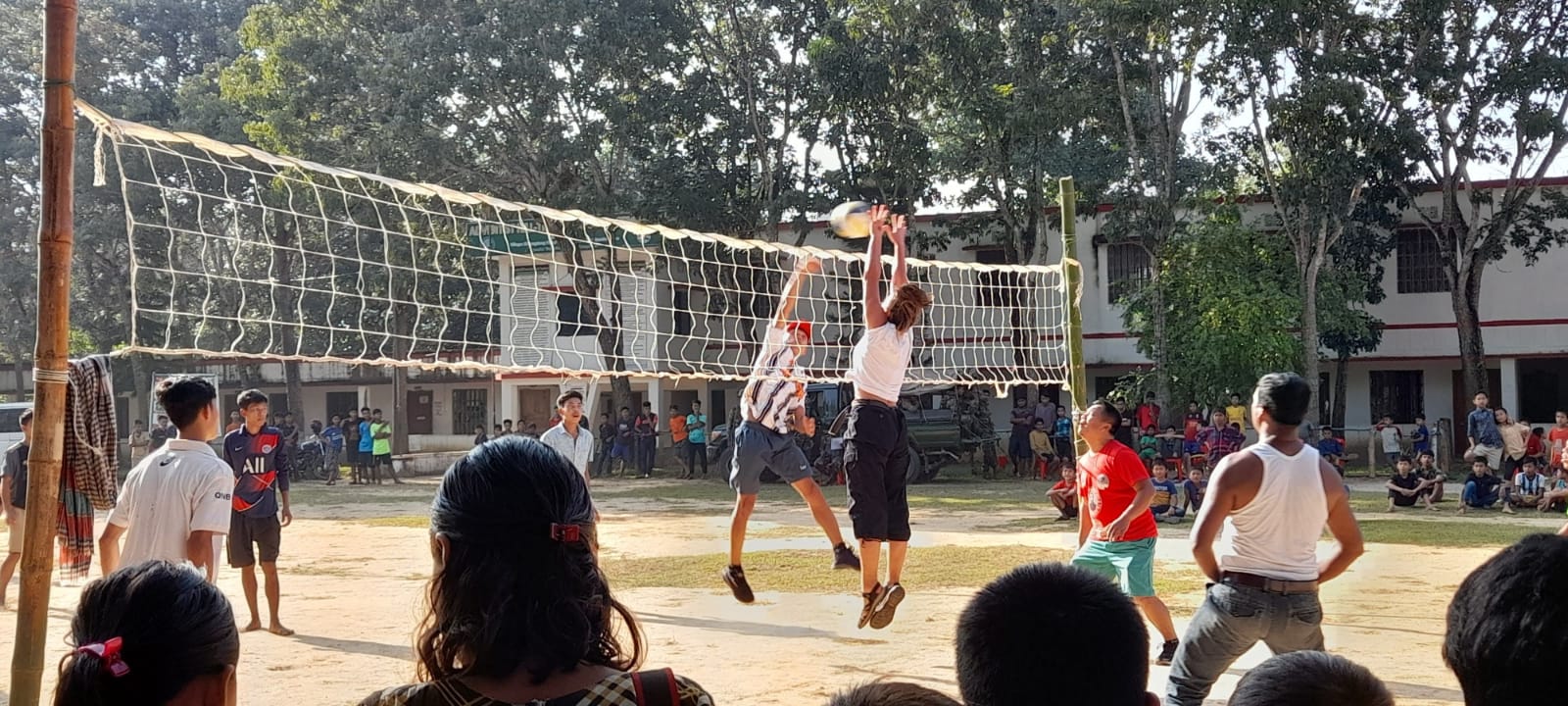
Safety in a dangerous area
When travelling to the east, you had to be accompanied by police and soldiers. How did you feel about it?
Back home my family was worried about this area. I was also worried because I made a mistake by checking the safety recommendations for Bangladesh before the trip. They were warning about this mountainous area. Nevertheless, once we arrived there, I felt safe. In fact, I always feel that way when I have people around me who are calm. Everyone laughed at us there. The police and soldiers actually surprised me the most. They wanted to take pictures of us and they also played volleyball with us. 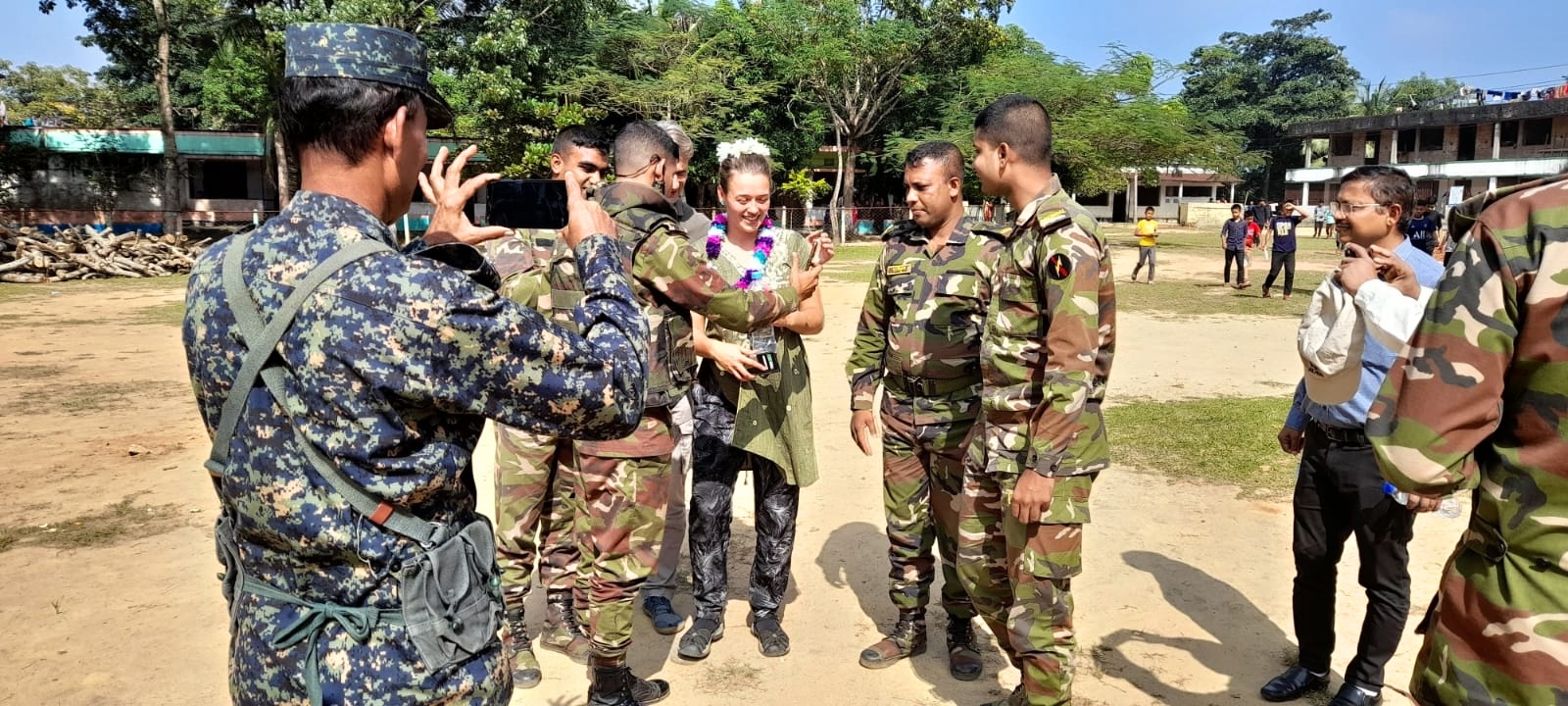 Later the police helped us to pass through the line of cars to get on a ferry…
Later the police helped us to pass through the line of cars to get on a ferry…
When someone asks me about the best thing about Bangladesh I always say it is the willingness of people to help. You do not even have to ask for help, Bengali people simply look at you and reach out to help.
Bangladesh in Eliška's heart
What did you learn from your trip to Bangladesh?
My last day in Bangladesh, I climbed the roof of one of the buildings in Dhaka to look around and think. I did the same my very first day there. I wondered what had changed since then. The first day I saw fears and worries about where I am and how can I survive there. For me, Bengali were unknown people who I sympathize with but do not understand their problems well enough.
During the trip I got to know their desires, their hopes, I have visited their houses, I saw their daily routines. Some of them became my friends. Something special was coming out of people, such humility and love…for children, for God. In fact for everyone who can accept it. From now on Bangladesh will not be unknown to me anymore. Bangladesh is in my heart.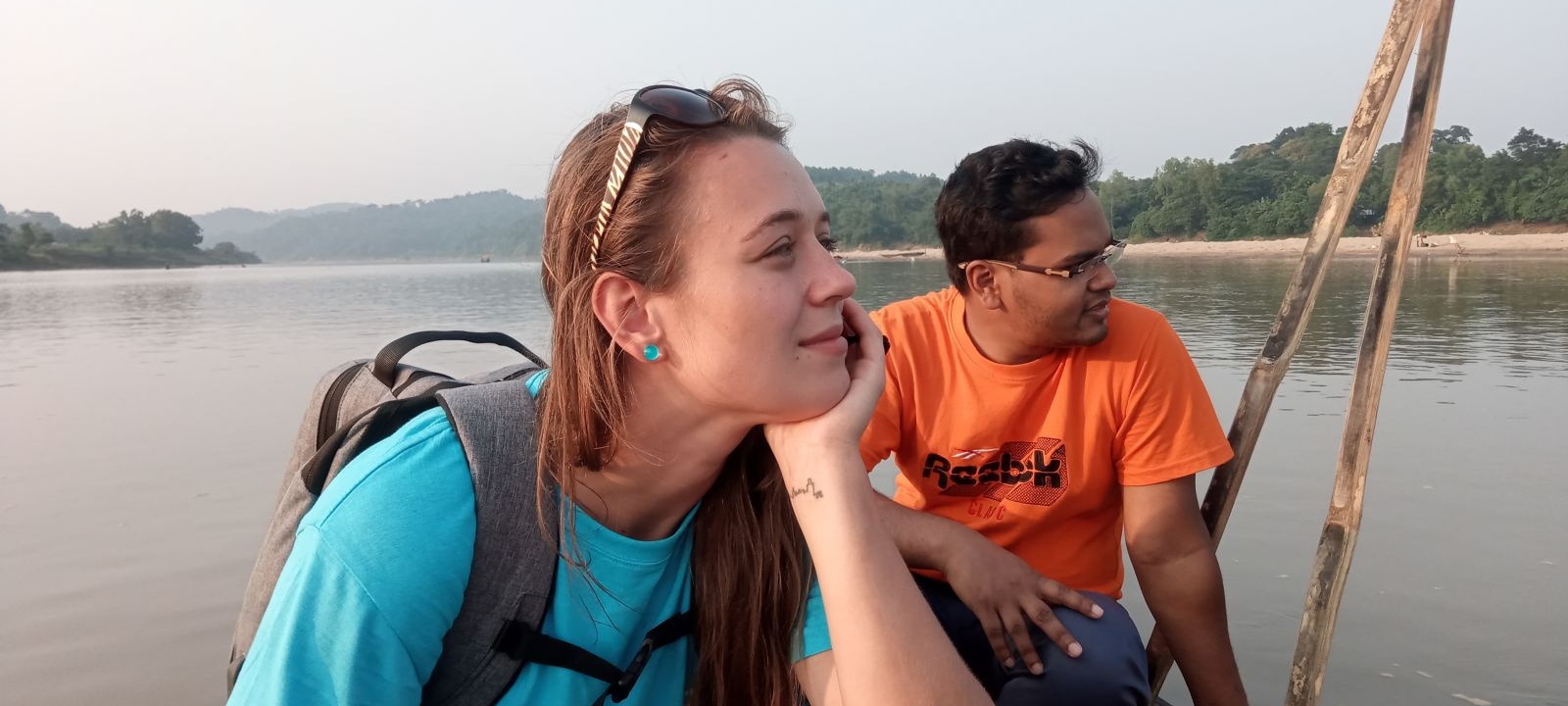 Thank you for the interview.
Thank you for the interview.


